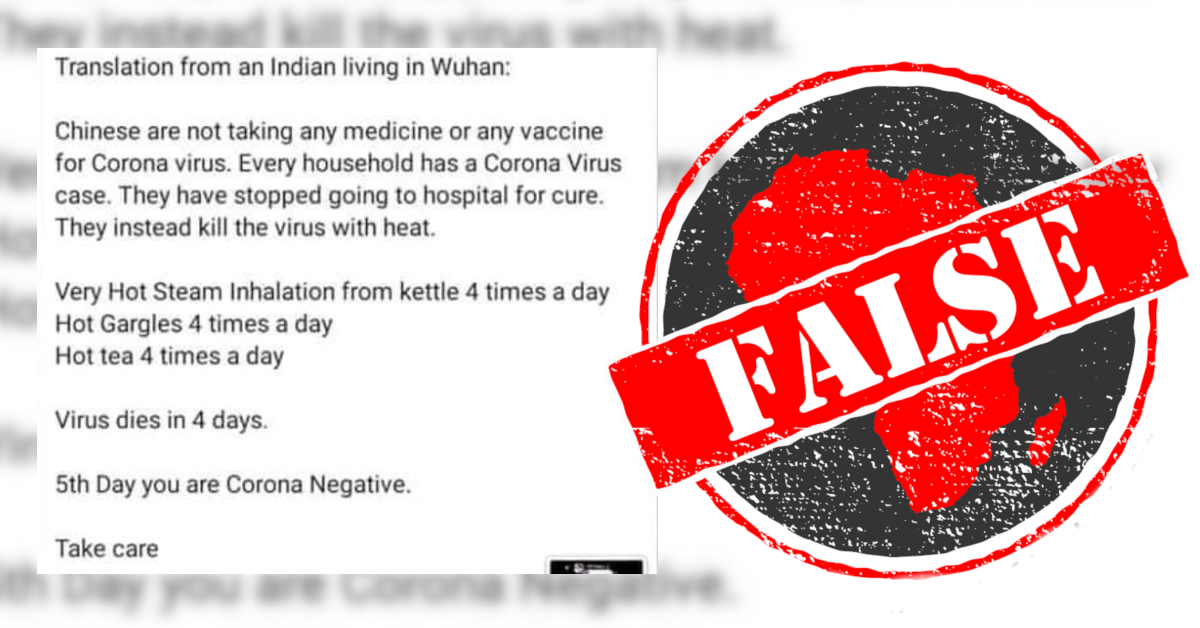A message doing the rounds on Facebook claims that “very hot steam”, inhaled from the kettle four times a day, and “hot tea”, also taken four times a day, can cure Covid-19.
The advice supposedly comes from a person “living in Wuhan”, the Chinese city where Covid-19 was discovered. The message claims that residents of Wuhan are no longer visiting the hospital and are killing the virus with heat instead.
But this advice is false. 
Body temperature and tea
According to the World Health Organization (WHO), there is no way to increase your body temperature to kill the coronavirus.
“Your normal body temperature remains around 36.5°C to 37°C, regardless of the temperature” of the steam you breath, the WHO says.
And tea will not cure Covid-19 either. Caffeine, a substance found in tea, is often used with other compounds to treat migraines and headaches. But it is not used to treat viral infections.
According to the WHO, there is currently no cure for Covid-19. “To date, there is no vaccine and no specific antiviral medicine to prevent or treat Covid-19,” it says on its website as at 24 April 2020.
Republish our content for free
For publishers: what to do if your post is rated false
A fact-checker has rated your Facebook or Instagram post as “false”, “altered”, “partly false” or “missing context”. This could have serious consequences. What do you do?
Click on our guide for the steps you should follow.
Publishers guideAfrica Check teams up with Facebook
Africa Check is a partner in Meta's third-party fact-checking programme to help stop the spread of false information on social media.
The content we rate as “false” will be downgraded on Facebook and Instagram. This means fewer people will see it.
You can also help identify false information on Facebook. This guide explains how.





Add new comment